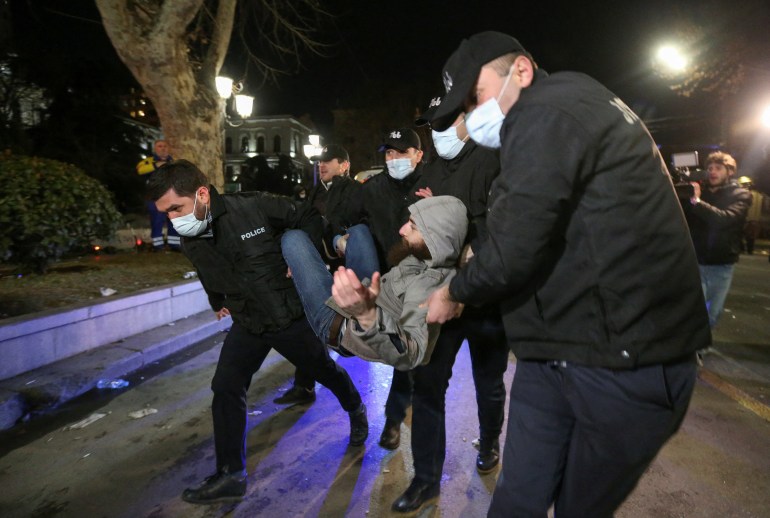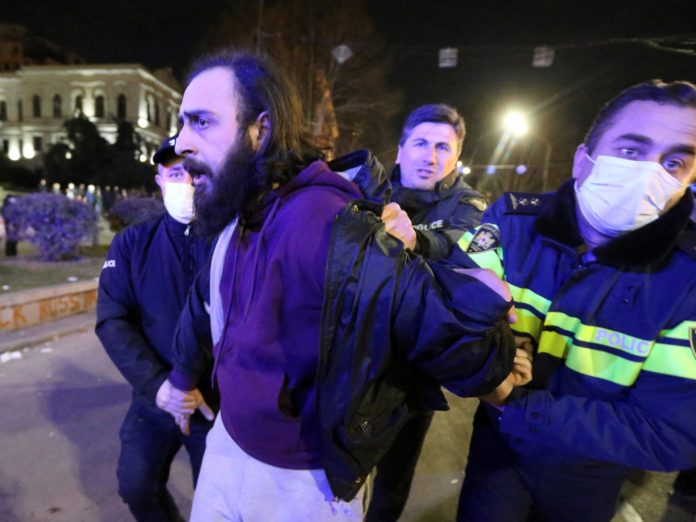Proposed law would require media outlets, NGOs that receive more than 20 percent of their funding from foreign sources to register as ‘agents of foreign influence’.
Authorities have used tear gas and water cannon outside the Georgian parliament building against protesters who oppose a proposed law some see as stifling freedom of the press.
The law, which has received initial approval, would require media outlets and NGOs that receive more than 20 percent of their funding from foreign sources to register as “agents of foreign influence”.
Thousands of people have been massing for days in the capital, Tbilisi, to protest against the proposed law, and a fight broke out at one point among politicians on Monday.
A majority of lawmakers in the parliament approved the draft law dubbed “On Transparency of Foreign Influence” in a first reading on Tuesday.
While Georgia’s president, Salome Zourabichvili, has said she would veto the bill, its authors say it is needed for the transparency of the work of entities financed by representatives of foreign states.
Parliament can override presidential vetoes.

In a video she shot with New York’s Statue of Liberty visible in the background, Zourabichvili supported the protesters.
“I am standing in New York, and behind me is the Statue of Liberty. This is is a symbol for which Georgia has always fought, for which we have come to this day. I am with you, because today you represent free Georgia,” she said.
“Georgia, which sees its future in Europe and will not give anyone the right to take this future. This law must be abolished in any form.”
The European Union has warned Georgia that by adopting this law it would harm its prospects of ever joining the bloc. International organisations have voiced concern over the draft law, saying it runs against Georgia’s democratic development.
Critics fear the law could have the same effect as a similar bill passed in Russia, where all organisations or individuals receiving financial support from abroad – or under some form of “foreign influence” – are declared “foreign agents”.

